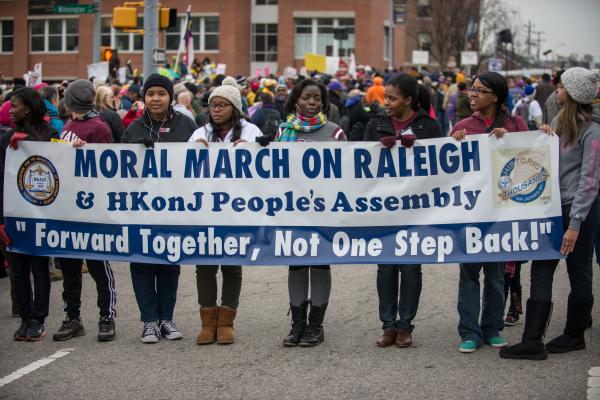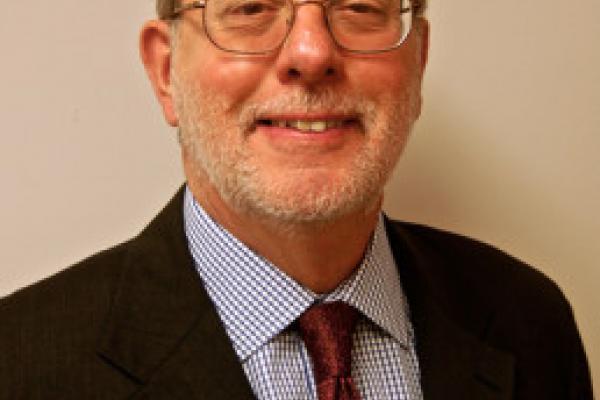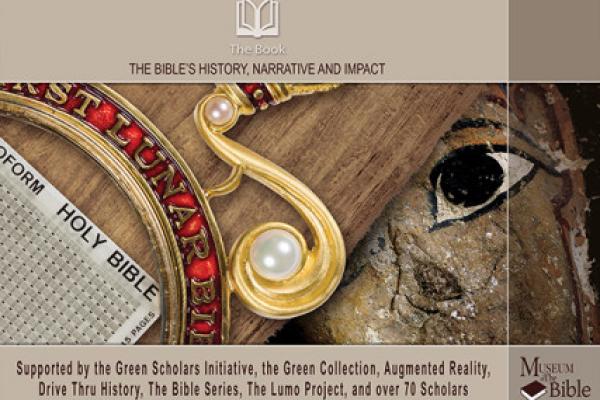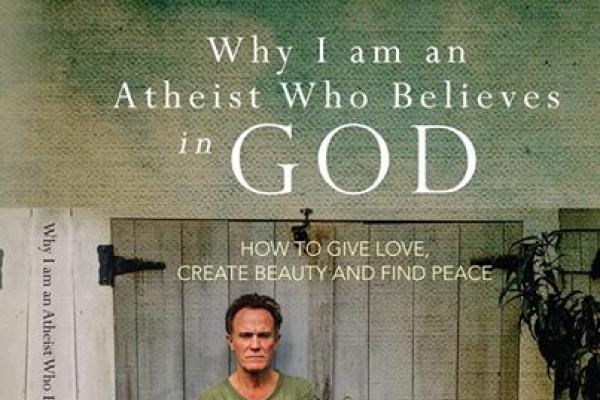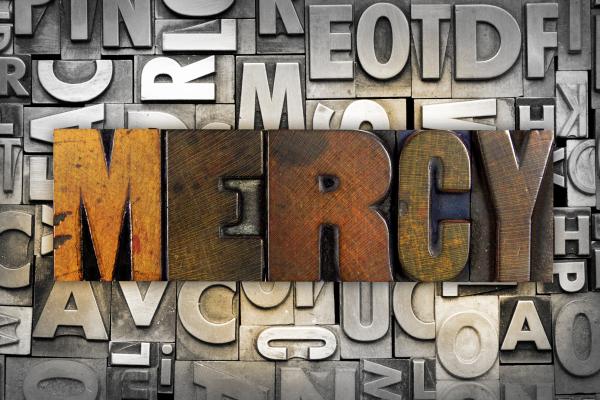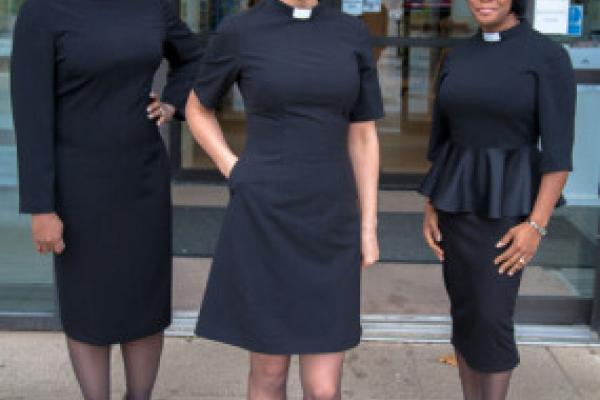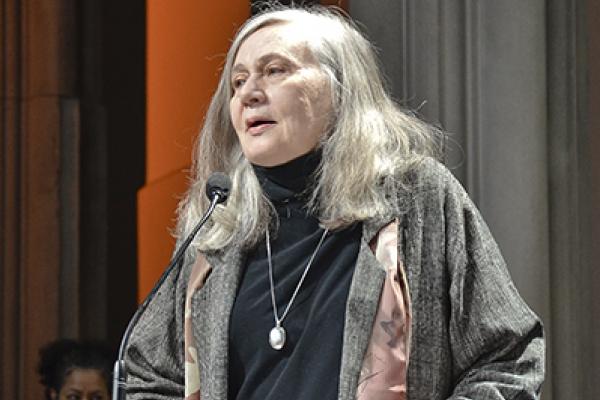I believe that deep within our being is a longing for a moral compass. For those of us who are moved by the cries of our sisters and brothers, we know that, like justice, the acts of caring for the vulnerable, embracing the stranger, healing the sick, protecting workers, welcoming and being fair to all members of the human family, and educating all children should never be relegated to the margins of our social consciousness. These are not just policy issues; these are not issues for some left vs. right debate; these are the centerpieces of our deepest traditions of our faiths, of our values, of our sense of morality and righteousness.
We must remind those who make decisions regarding public policy what the prophet Isaiah said "Woe unto those who legislate evil ... Rob the poor of their rights ... make children and women their prey." Isaiah 10: 1-2
Martin Luther King, Jr. said 46 years ago in one of his last sermons that if you ignore the poor, one day the whole system will collapse and implode. The costs are too high if we don’t address systemic racism and poverty. It costs us our soul as a nation. Every time we fail to educate a child on the front side of life, it costs us on the back side — financially and morally.
In a marketplace unfettered by ethical restraint, a sense of duty, concern for others, or even basic shame, 25 hedge fund managers gave themselves a 50 percent pay boost in 2013.
Never mind that hedge funds’ performance, on average, tanked for the fifth consecutive year.
These 25 men wanted big bucks, so they took them: a total of $21 billion. All for managing wealth that someone else created and, except for a few, not managing it particularly well.
The top earner paid himself $3.5 billion for 2013.
On April 14, the school board in Mustang, Okla., voted to institute an elective Bible course. This is not news. More than a thousand U.S. public schools offer Bible as literature courses.
In March, Hobby Lobby argued before the Supreme Court for a religious liberty exemption to the Affordable Care Act. Now Green is promoting the Bible curriculum the Mustang school board just adopted — a curriculum he predicts will soon be adopted in hundreds, perhaps thousands, of American public schools.
The first ever global study of anti-Semitic attitudes shows that more than a quarter of the world’s population (26 percent) harbors anti-Semitic views.
The poll, released Tuesday by the Anti-Defamation League, also finds that a large proportion of the world has never heard of the Holocaust, or denies historical accounts of it.
Of those polled, 54 percent of those polled — and less than half of those under 35 years old — had heard of the Holocaust.
“For the first time we have a real sense of how pervasive and persistent anti-Semitism is today around the world,” said Abraham H. Foxman, national director of the Anti-Defamation League.
Jesus' teaching to his followers in John 14:6 is a challenging one in our world filled with people of diverse faiths: "Jesus said to him, "I am the way, and the truth, and the life. No one comes to the Father except through me." See " What Do Our Beliefs Say About Us?" by Rev. Dr. Guy Nave. The following new hymn lifts up Jesus' teaching in the context of his inclusive ministry seeking God's love and justice for all. John 14:1-14 is the Revised Common Lectionary gospel lesson that will be read in many churches this coming Sunday, May 18th.
Christ, You Are the Savior
ASH GROVE (“Let All Things Now Living”)
One phrase comes to mind, time and again, when I think of Frank Schaeffer: “THINK AGAIN.” Any time I think I have a handle on things theological, he seems to find the thread, hanging from the edges, and gives it a good, solid yank.
Such is the case once again with his newest book, Why I am an Atheist Who Believes in God: How to give love, create beauty and find peace. Just when it seems the delineations between theism and atheism, between believers and nonbelievers, is sufficiently clear, Schaeffer blurs even those lines, leaving us to wonder what it is any of us actually believes and why.
Frank Schaeffer is not one to deconstruct theology (or even the lack thereof) with some kind of sadistic joy, leaving us to sort through the pieces. Rather he explores what I might call trans-theism, offering us practices, a vocabulary, and a worldview that take us far beyond belief toward a deeply human – and yet inexplicably transcendent – experience.
I asked Frank several questions about his new project; here is what he had to say.
Southern Baptist leader Albert Mohler wrote a piece last week defending the death penalty. In his 1,200-word argument for why Christians should support the death penalty, he does not mention Jesus a single time.
Digging deeper, as you read the official pro-death penalty statement of the Southern Baptists, there is not a single reference to Jesus or the Gospels.
There are plenty of other problems with the scriptural maneuvering used to justify the contemporary practice of the death penalty with a few verses from the Bible, in the same way that a few verses were misused to justify slavery. For starters the biblical death penalty was required not just for murderers, but also for folks that committed adultery, disrespected their parents, collected too much interest, had premarital sex, and disobeyed the Sabbath. But I want to stick with the nagging problem of Jesus, the greatest obstacle for pro-death penalty Christians.
In a recent Barna Poll, fewer than 5 percent of Americans think Jesus would support capital punishment, and fewer than a quarter of young Christians support it. Nonetheless some Christians find ways to sidestep Jesus, the lens through which all of us who claim to be Christians should interpret the Bible and the world around us.
The brutal abduction of several hundred Nigerian schoolgirls has stunned and outraged the world. A violent organization called Boko Haram, and its leader Abubakar Shekau, took credit for the kidnapping more than 300 female students from their classrooms at gunpoint, from a government-run school in Chibok, on April 14. In his subsequent video, the smiling terrorist leader told the world they would sell the teenage girls “into the marketplace” or forced marriages; in his latest, he claims the girls have converted to Islam. Shekau has claimed that God told him to do all of this. That is a lie. It is an abomination. It is a blasphemy against God, and people of faith from all traditions should denounce his words.
Invoking the name of God to justify human barbarity is a painfully tragic and an ongoing occurrence. If hearing these lies about God breaks our hearts, we can only imagine they must also break the heart of God. As the Qur’an warns, “Who is more unjust than he who lies against God?” This kind of blasphemy often derives from extreme religious fanaticism that can be found in all of our faith traditions — those who pervert, abuse, and use the language of religion for fear, hate, and power. These self-proclaimed religious leaders must be utterly denounced as false and human abominations of religion and must be publically condemned and held accountable by faith communities around the world.
A London-trained fashion designer has launched a new range of clerical wear for women in the Church of England.
Camelle Daley, who founded the label House of ilona, says it’s high time for a shake-up among Anglican clergy who, like Roman Catholic priests, still wear traditional black shirt and collar.
Daley said she got the idea when a recently ordained friend said she wanted a new look for a new age.
The result?
Daley’s collection, now selling briskly, includes peplum dresses and tops, classic black dresses, and a fitted green blouse with chiffon detail.
Pulitzer-Prize winning author Marilynne Robinson draws a wide fan base that spans lovers of serious literature, including many conservative Christians. This fall, she will release “Lila,” a follow-up to her earlier novels “Gilead” (2004) and “Home” (2008) about a 1950s-era Iowa town that won her many accolades.
Robinson’s diverse fan base was described in The American Conservative as “Christian, not Conservative.” As the author noted, Robinson is far from holding up ideals put forward by the religious right. But that doesn’t stop conservative Christians from engaging with her writing.
Before giving an address at Union Theological Seminary this spring, Robinson spoke to Religion News Service about a variety of social issues. In the interview, Robinson explained why she thinks Christians are fearful, why she loves theologian John Calvin and whether she’ll join Twitter.
